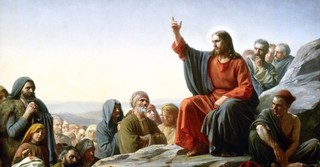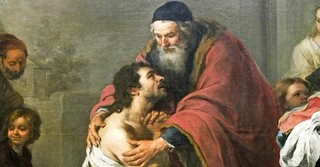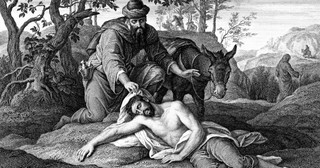Bible Story of Elijah
Share

The Story of Elijah in the Bible
The Bible story of Elijah is found in the Old Testament, in the first book of Kings chapters 17 and 18. Elijah's story begins by introducing the state of affairs for the people of Israel. They had been governed by kings for numerous years and several of these kings had been evil. God was troubled with what the people were experiencing and he delivered his prophet, Elijah, to guide them out of corruption and suffering.
Before Elijah actually arrives in Israel, God sends a drought as he is so displeased with the people. Elijah had been residing out in the desert where there was a river with drinking water and God had sent ravens to bring him food. Eventually, the river also dries up and God instructs Elijah to go to the home of a widow who will provide him with food. When Elijah comes to the town of Zarephath, he sees the widow and asks her to get him some water and bread. She replies that she only has a small amount of flour and oil and is collecting sticks so she can cook this last portion of bread as the last meal for her son and herself. Elijah assures her that God will not allow their food to diminish until the rain returns. The widow trusts in Elijah and their food lasted until it rained again. Sometime later, the widow's son became ill and passed away. The widow was very troubled, believing that Elijah was the reason for this tragedy. Though Elijah was blamed by the widow, he attempted to bring the boy back to life by praying to God. In a miraculous event, God heard Elijah and answered his prayers, and brought the boy back to life. When Elijah returned the boy to his mother, the woman could recognize that Elijah was a man of God and was amazed.
The story continues as Elijah confronts the evil king, Ahab, about being the cause of problems for the people of Israel. Elijah challenges Ahab to a demonstration of his deity, Baal, versus the God of Elijah at Mount Carmel. The challenge is to offer sacrifices to their respective deities and see which starts a fire to prove their divinity. Ahab's prophets pray for hours to Baal but nothing happens. When it is Elijah's turn he boldly drenches the sacrament with water to display his supreme trust in God to start a fire despite being wet. Then Elijah began to pray:
“O Lord, God of Abraham, Isaac and Israel, let it be known today
that you are God in Israel and that I am your servant and have
done all these things at your command. Answer me, O Lord,
answer me, so these people will know that you, O Lord, are God,
and that you are turning their hearts back again.”
God then sent down a fire that completely engulfed the sacrament in flames and the people of Israel rejoiced with a newfound faith in God. The fire was followed by rain ending the long drought, further showing God's grace. The Israelites lost faith in Ahab and followed Elijah's guidance in trusting and recognizing God's sovereignty.
Why Did the Prophet Elijah Never Die?
There are many great prophets in the Old Testament, but one is considered the greatest. Elijah was a prophet who stood for God despite huge obstacles, performed dramatic miracles, and became a symbol of the role that John the Baptist would fill (“Elijah must come first…”). Despite the many powerful moments in Elijah’s life, he also had times of doubt and struggle, making him one of the more complex Old Testament figures. Here’s an overview of this fascinating man’s life.
Who Was Elijah in the Bible?
Elijah was a prophet of Israel during the Old Testament period. He first appears in 1 Kings 17:1 and is described as a “Tishbite in Gilead,” a region of Israel referenced earlier in places like Genesis 31:21–22 and Judges 10:4.
Like most prophets mentioned in the Old Testament, Elijah’s job involved condemning sinful leaders and foretelling the punishments that God would bring if people didn’t repent. His first appearance is telling King Ahab of Israel that because he has turned Israel to false gods, a drought will cover the land. The drought ended seven years later with a dramatic showdown between Elijah and 850 pagan priests. As detailed in the next section, Elijah went through a period of discouragement after things didn’t go quite as he expected following this big success.
After these dramatic events, Elijah took on a disciple, Elisha. Elijah continued to speak out against Ahab on at least one occasion when he had someone murdered. He also spoke out against Ahab’s successor, Ahaziah. Sometime after Ahaziah’s death, Elijah passed his title on to Elisha…in a particularly dramatic way.
What Are Some of Elijah's Most Famous Moments?
Elijah’s life had many great moments worth exploring. The most famous ones are arguably the following:
Raising a boy back to life (1 Kings 17). After speaking out against Ahab, Elijah spent seven years in hiding, much of it staying with a widow and her son in the Sidonian town Zarephath. During this period, the widow’s son died of illness and Elijah prayed for the boy to come back to life. After Elijah prayed and touched the boy three times, he came back to life.
Fire on Mount Carmel (1 Kings 18). After seven years of drought, Elijah had King Ahab bring the 450 priests of Baal and 400 priests of Asherah to Mount Carmel. There, he issued a challenge: built an altar and see which god set it on fire. After many hours of the pagan priests trying to get a response from Baal, Elijah built his altar. To make things more interesting, Elijah covered his altar with water after he built it. After praying to God, fire came from heaven and lit Elijah’s water, even making the water burn. To top the event off, Elijah had all the priests of Baal killed.
Meeting God at Mount Horeb (1 Kings 19). After Elijah had shown God’s power on Mount Carmel and killed all the prophets of Baal, Ahab’s wife Jezebel planned to have him killed. Elijah fled into the desert prayed for his death. Instead, an angel appeared multiple times and gave him food. Ultimately, Elijah reached Mount Horeb, and God spoke to him, giving him new tasks and generally making it clear that he wasn’t finished with Elijah yet.
Condemning Ahab for Naboth’s death (1 Kings 21). Despite having gone through a national drought for disobeying God and seeing God’s power in a dramatic way on Mount Carmel, Ahab apparently didn’t learn to behave better. After those events, Ahab tried to get a neighbor, Naboth, to sell him a vineyard to use as a vegetable garden. When Naboth didn’t take Ahab’s offer, Jezebel had him killed and Ahab took over the vineyard. Elijah came and condemned Ahab, prophesying his death and the destruction of his family line. Ahab repented and God decided to hold off the family line’s destruction for a generation.
Calling down fire on soldiers (2 Kings 1). When Ahab was succeeded by Ahaziah, Elijah used an intermediary to condemn Ahaziah’s seeking pagan gods for advice about whether he would survive an illness. In response, Ahaziah sent 50 troops to collect Elijah, who called down fire from heaven to kill them. Another set of 50 troops were sent, Elijah called down fire from heaven again. When the third set of 50 troops arrived, the captain begged Elijah for mercy. Elijah sought God’s advice and went with the troops, meeting Ahaziah on his deathbed. Elijah repeated the message that he had given through the intermediary, and Ahaziah died shortly afterward as punishment for not trusting God.
There is one last important moment in Elijah’s life, which came at the end.
What Happened at the End of Elijah's Life?
1 Kings ends with the death of Ahab, and 2 Kings starts with the story of Elijah calling down fire. After that, Elijah apparently got a message that God was going to “take him away,” which other prophets also knew. Elijah and Elisha traveled to Gilgal, then to Bethel, Jericho, and finally to the Jordon River. As they traveled, Elijah repeatedly told Elisha to stay behind while he went on to somewhere God had called him (1 Kings 2:1,4,6), with Elisha always replying, “As surely as the Lord lives and you live, I will not leave you.” On two occasions, they met other prophets who warned Elisha, “Do you know that the Lord is going to take your master from you today?” (2 Kings 2:3, 5). Both times, Elisha replied he did know, but asks them not to speak about it.
Finally, at the Jordon, Elijah made the water part, and the two men walked across. On the other side, Elijah asked Elisha, “what can I do for you before I am taken from you?” (2 Kings 2:9). Elisha asked to inherit a double portion of Elijah’s spirit, which Elijah said was difficult but, “if you see when I am taken from you, it will be yours” (2 Kings 2:10).
Then, a chariot of fire pulled by fiery horses appeared, coming between Elijah and Elisha. Elijah went up in the chariot in a whirlwind, and Elisha yelled, “My father! My father! The chariots and horsemen of Israel!” (2 Kings 2:12). Elisha then took the cloak Elijah had used to part the water, went back to the Jordon, and made the water part in the same way that Elijah did (2 Kings 2:14).
Why Didn't Elijah Die?
The Bible doesn’t explicitly give any reason why Elijah was taken directly into heaven, any more than it gives for why Enoch was taken up to heaven. There are debates among Revelation scholars about whether both men will eventually die. Specifically, the argument goes that since Hebrews 9:27 says that all humans must die once, Elijah and Enoch are the two witnesses mentioned in Revelation 11:3-12 who come at the End Times, get killed, and then return to heaven.
It is worth noting that Enoch is commended in Hebrews 11:5 for his great faith. While Elijah seems to have doubted God’s protection after Mount Carmel, that doesn’t necessarily mean he didn’t have great faith. He continued to serve God well after that and passed on his learning to Elisha.
In the end analysis, it may be best to admit we aren’t sure why Elijah received this honor, but that it shows us something encouraging. The fact that God honored Elijah in spite of his doubts reminds us that in the end, God will decide our legacies. Being fallible human beings, we will all struggle. We will not always live “the victorious Christian life” we see in inspirational stories. Regardless of our struggles, doubts, or mistakes, God loves us and uses us in unexpected ways.
Photo credit: ©Getty Images/Javier Art Photography
Read the full scripture text of the Bible story of Elijah below and discover Articles, Videos, and Sermons relating to his life!
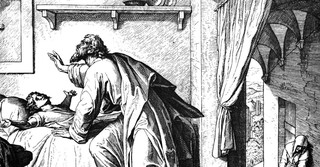
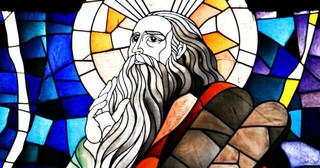




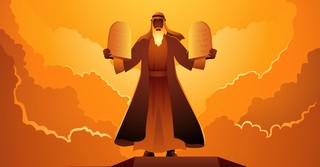
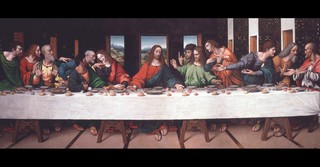

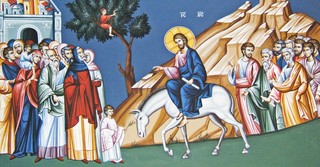
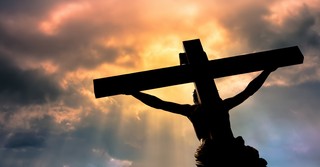
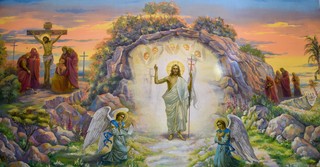
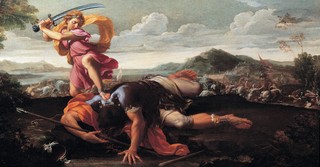
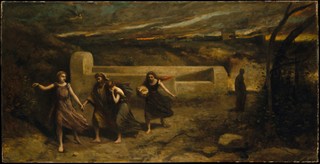
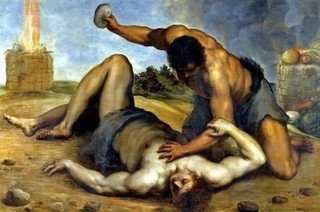
.800w.tn.jpg)
